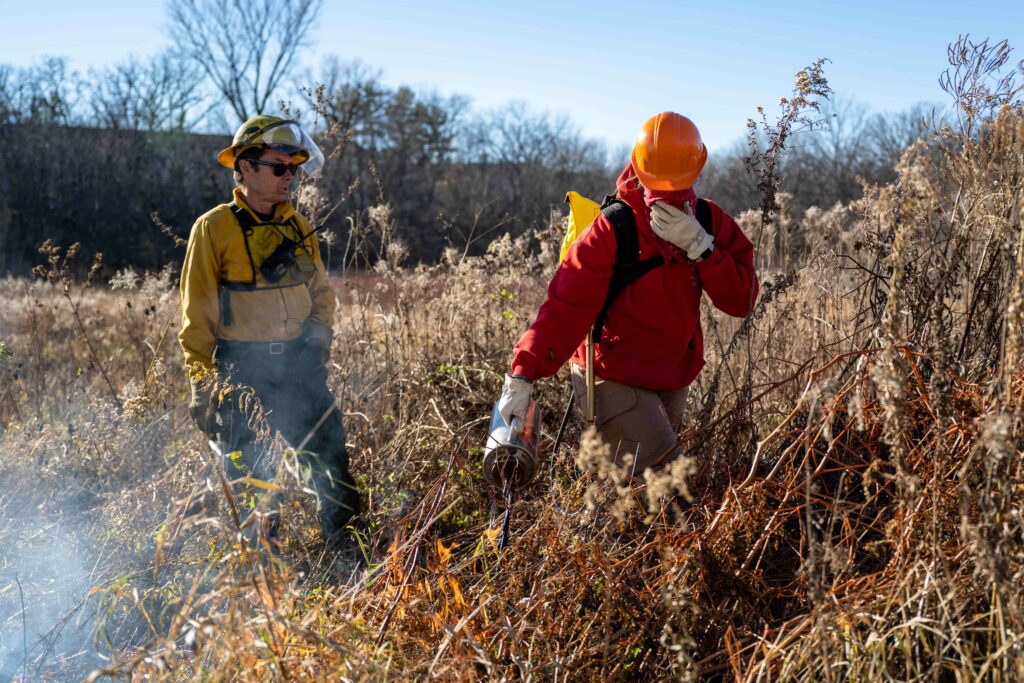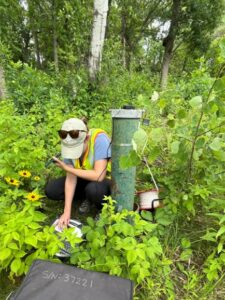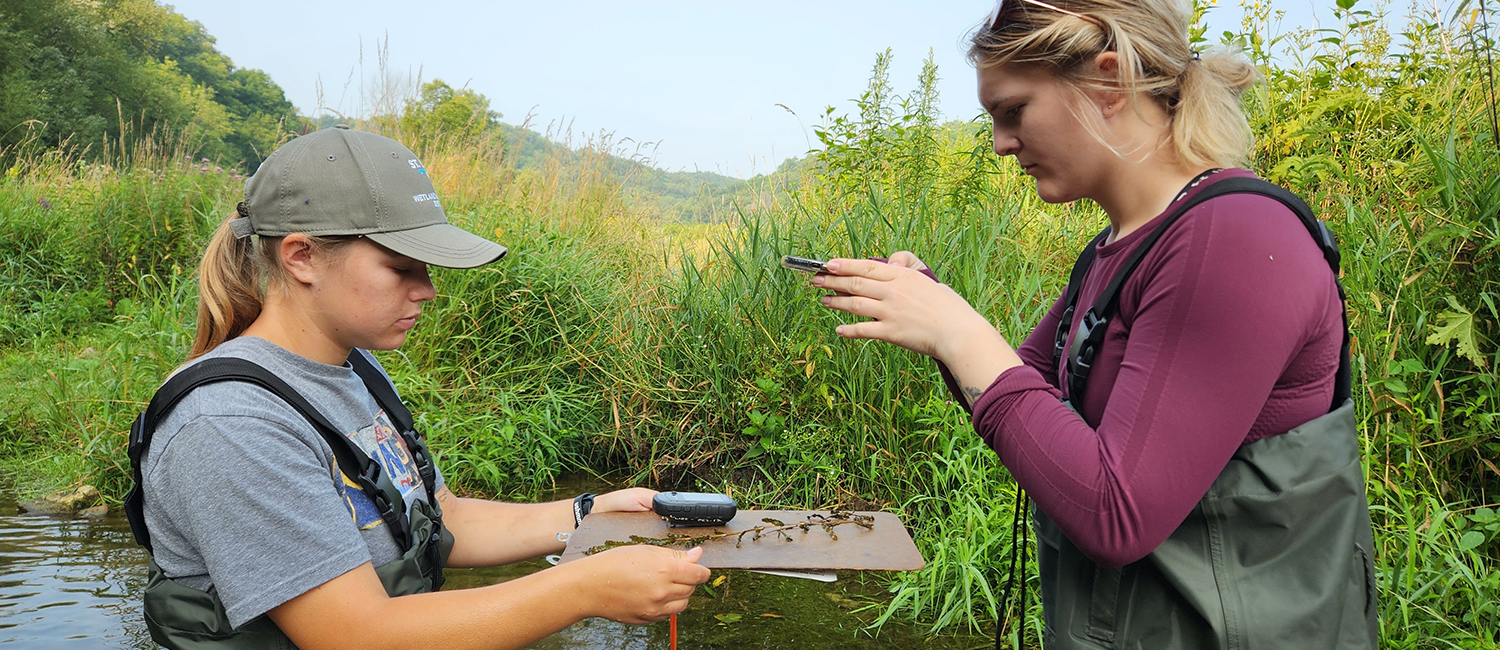By Heidi Jeter, Freshwater Collaborative
For UW-Stout senior El Bartho, interning at the UW-River Falls Ecological Restoration Institute (ERI) was the perfect way to determine what she wants to do after graduation.
The Environmental Science major, who is double minoring in Geographic Information Systems (GIS) and studio art, interned as a conservation technician in summer 2023, working on a pilot project with the U.S. Fish and Wildlife Service (USFWS) St. Croix Wetland Management District.
“I really wanted to learn the restoration and preservation tactics implemented by real-life organizations, and this internship allowed me to see the techniques used on a local level and on a federal level,” Bartho says.
The ERI is a donor-funded initiative established in 2020 to provide high impact experiences for UW-River Falls students going into conservation and environmental science. The ERI offers work experience and internships to undergraduates as well as certifications in chainsaw safety, aquatic and mosquito pesticide application, ATV and boat safety trainings with the WDNR, NOLS-accredited wilderness first response training, and wildfire fighter training. In 2023, 78 UW-River Falls students enrolled in one of the training/certification courses.

“The idea is to give students boots-on-the-ground experiences that translate to career skills that allow them to be productive contributors right out of the gate, which is really exciting,” says Holly Dolliver, professor of geology and soil science at UW-River Falls.
Dolliver hopes that in the future, with additional funding, the ERI would be able to offer certifications to students from other UW campuses and the broader community.
“We are exploring the possibility to extend our certifications and trainings to the community,” she says. “We’re in a very conservation-centric area of Wisconsin. There’s a lot of interest and a lot of need. We are well-positioned to be a center of excellence in conservation education and training.”
Dolliver says the Freshwater Collaborative grant also allowed UW-River Falls to expand the joint internships with USFWS. Bartho was the first intern hired from another campus, and she found it beneficial to share ideas and perspectives she gained at UW-Stout from faculty and students from UW-River Falls.
“I found it incredibly interesting to see how UW-River Falls incorporates their on-campus resources into their curriculum,” she says. “I was able to combine the knowledge I gained from my time at UW-Stout with my newly acquired knowledge from UW-River Falls and USFWS.”

She and her coworkers spent four days a week working at USFWS Waterfowl Production Area (WPA) sites — small federally protected areas of land that provide recreational activities and habitat — and one day a week on the UW-River Falls campus where they implemented what they learned on campus restoration projects that include forest systems and a floodplain managed as a wet prairie of the South Fork River System.
The interns also received Wisconsin Water Action Volunteer training to be able to determine the water health of Wisconsin streams and became herbicide applicator licensed in the state of Wisconsin. One of the things Bartho enjoyed most was the range of locations and experiences, including duck banding with the Wisconsin DNR, picking and planting seeds, water sampling with hydrologists, vegetation surveys, bird surveys, aquatic invasives monitoring, and nature and bird walks.
She also appreciated how her supervisors took time to partner her with federal and state hydrologists and encouraged her to explore her interest in GIS. Those experiences helped her determine she would like to pursue a career in bathymetry, the study of the underwater beds of water bodies that will allow her to combine multiple interests.
“I wanted an internship that allowed me to explore the possibilities that a career in my major could entail and that’s what I got!” she says. “I’d like to extend my gratitude to the UWRF Ecological Restoration Institute, the Freshwater Collaborative, and the USFWS St. Croix Wetland Management District for all their planning and organization that went into this program that allowed me to have this internship.”
Visit www.uwrf.edu/PES/ERI.cfm to learn more about the certifications and trainings offered by the Ecological Restoration Institute.

